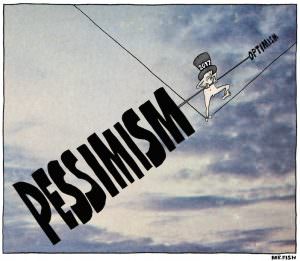Private Equity is Bleeding American Society Dry
Labor journalist Kim Kelly dissects the demise of the sports website Deadspin and what it means for the future of American journalism. G/O Media CEO Jim Spanfeller. (YouTube screen grab)
G/O Media CEO Jim Spanfeller. (YouTube screen grab)
What follows is a conversation between journalist Kim Kelly and Marc Steiner of The Real News Network. Read a transcript of their conversation below or watch the video at the bottom of the post.
MARC STEINER: Welcome to The Real News, folks. This is Marc Steiner. Good to have you with us.
I have a guess many of you have been reading about what happened to Deadspin, the sports site where writers gave the middle finger to the owners who tried to stop them from being political. They didn’t want them write political stuff, just sports stuff straight. Well, they did that. And let’s think about these private equity firms for a minute. They are vampires sucking the lifeblood out of our country, businesses, and the workers. The analogy is really apt. Private equity capitalists symbolize, let’s say–I found this out in an article I just read; we’re about to talk to the author–the 16th century Countess Bathory who bathed in the blood of young girls, or the vampire stories from every country on the planet.
Our guest they put these analogies together in a bold context when she wrote about the destruction of the sports website Deadspin. And she looked beyond that; looked at the role of these venture vampire capitalists and what they do in our world, what they play in our world, what they’re doing to our world. So I want to welcome Kim Kelly back to The Real News, who wrote the article This Is a Horror Story: How Private Equity Vampires Are Killing Everything, for The Nation magazine. And Kim, welcome. Good to have you with us.
KIM KELLY: Thanks, Marc. Thanks for being interested in my weird bloody little tale.
MARC STEINER: It was very strange article, but a really good article. I love the analogy. So let’s take a step back for just a second. So you took these, we’ll probably jumped into who these private equity people are and what they’ve done, what happened to Deadspin directly. You create this analogy, this historical analogy with both a mythology and reality of vampires in our world, wherever culture they came from, to what private equity people are doing to our world today. So talk about how that came to you. How did that come into your head? And as you told me before, you said three in the morning, which is probably a very apt time to write it.
KIM KELLY: Even better. I’m not going to lie to you. I wrote this on Halloween, which sounds a little too on the nose, right?
MARC STEINER: I love it. That’s great.
KIM KELLY: I mean, the piece came about because some editors of The Nation hit me up and said, “We saw what’s happening with Deadspin. Do you want to write a piece for us about this?” Because I’m a labor reporter and that’s sort of what we do. This is very much in my realm, given that I came out of the digital media organizing world. I used to work at Vice, I was an organizer there–yada, yada, yada. So they asked me if I wanted to do this and I was thinking about it. I was like, “Well, what’s a way that I could write about this in a way that was new; that was interesting; that wasn’t the same piece that was being written because it was a huge story, because it was such a huge event?”
But I started thinking about these “capitalist vampires.” I was like, “Hang on… vampires.” Because we see, even just on Twitter, the way people speak about private equity and the general capitalist class; they’re vampires, they’re bloodsuckers, they’re leeches. This is the language that makes sense when you think about the way that capitalism is structured; the way that these people, these robber barons at the top, are dealing with the working class. But I kept going back to the vampires. And it was Halloween, so maybe I was feeling a little spookier than usual. And I just started thinking about how this is a horror story.
Like what’s happening here: these craven aristocratic jerks are literally sucking the life blood away from workers who don’t have any much more of a defense than a metaphorical pitchfork. And they’ve been allowed to do it for centuries, since time immemorial, since way back in the 16th century when Countess Bathory was out there in her dungeon. And we just see the same story over and over again. It’s almost become its own legend, the private equity vampire. So that’s what I was thinking about when I approached this piece, and I just rode that metaphor out to the very end.
MARC STEINER: Yeah, you’re certainly did. As I said, I love this piece. But let’s just talk a bit about… You were commissioned to write a piece about Deadspin, which we’ve been talking about here, at Real News for the last couple of weeks in what’s happened to the workers at Deadspin. And so that’s where this began, right? And I was shocked. I did not know the whole backstory of Deadspin and the other online magazines and news journals that are owned by the same companies. Talk a bit about that story and how this is private equity, owning all of these kinds of new sites and what they’re, what they’re doing to suck the lifeblood out of our work as journalists and Americans who want to read this stuff.
KIM KELLY: Right. I mean we’re seeing it play out across various industries, but right now it’s just really blatant and concerning in media. Specifically in digital media where you have these private equity firms and soulless billionaires who swoop in and they buy a website or package of websites, and then they decide to either scrap it and sell it for parts or try to remake it in their own image. And what happened with Deadspin was other workers resisted. They weren’t willing to be led to the slaughter. They fought back. And we’re at a point where the free press is under attack from the highest office in the land. Just in general, journalism is in a crisis. And now we’re seeing the economic side of this crisis where it’s difficult for digital media publishers to make money, and so they’re looking for other ways to acquire that capital.
And this is where private equity comes in. They come in: they’ve got all this money, they’re going to sweep you off your feet, they’re going to get you out of bankruptcy, they’re going to fix everything. And then, they acquire these independent, thriving websites and then they just suck the blood out of them and toss them aside. And what happened with Deadspin, the reason people are so captivated, is because they disrupted that narrative. That’s the horror story. The vampire comes in and sucks away your blood and that leaves you lifeless. In this case, the villagers fought back and that’s why people are responding so viscerally to it.
MARC STEINER: So talk about the company that actually bought these sites. It was more than just Deadspin. I didn’t realize the sites, that some of them… I read they own this long list of sites of all kinds. So tell me a bit about that company and what exactly they did.
KIM KELLY: It’s a whole constellation, right? This company is now known as G/O Media, which is run by the CEO Jim Spanfeller who is a Forbes guy who came in and bought up. It’s like Jezebel, Kotaku, The Route, Splinter, was Deadspin, Life Hacker. This whole constellation of former Gawker media sites except Gawker… You know, R.I.P. And they were all swept under this deal after this Peter Thiel-funded Hulk Hogan chaotic situation where the company was sued out of existence. Jim Spanfeller came in and this was… man, it’s been a crazy one, right? Because it was Gawker media, and then Univision bought this damaged company and then Univision couldn’t figure out what to do with these websites and they weren’t making the kind of money they wanted to see.
And so Jim Spanfeller swept in. He bought all these websites and it seems like from reading some really incredible reporting that now former Deadspin writers and Splinter writers within the organization wrote about what that process was then like, it seems like they just came in and screwed everything up. It seems like this man, he came in and installed a bunch of his cronies from Forbes, who I mean, that’s Forbes is doing its thing, or no disrespect to Forbes, but oops. And the Deadspin and Splinter and the Gawker media verse, they’re intrinsically… They’re diametrically opposed. So they came in and they essentially wanted to quash worker descent and quash all of this sort of fiery irreverent vibe that everybody working there had. Because it was a beautiful collection of weirdos.
And they ended up killing off Splinter, which was a really… It was a fantastic sports–or not sports. That was the next one. It was a fantastic political commentary site and they just killed it off. And then they came for Deadspin. And I think the people that Deadspin sort of saw the writing on the wall and they knew something was up; something bad was going to happen. And then it all happened so quickly and so chaotically and so definitively that now Deadspin–I mean, to reference another horror trope–Deadspin is just a zombie. And everyone else, everyone who used to work there, is gone.
MARC STEINER: So you mentioned a lot of other equity firms that took over many things in our country, from grocery store chains to retail, and just putting everyone out of work. Tens of tens of thousands of people we put out of work because of the equity firms buying and pushing people out, which is why I thought it was the analogy to vampires was very apt.So you can talk a bit about that? But also just what happens in our country when private equity takes over all these companies, shuts them down because there are not the kind of profits they want to make. Thousands of people thrown out of work. This is the 21st century version of the gilded age, what’s happening to people out in America and around this world. So what do you do? And talk a bit about some of the examples that you gave. But also, what we do to drive a stick through the heart of these equity firms and stop them from destroying what we have?
KIM KELLY: Yeah, you’re entirely right. We’re basically in a new gilded age and these are the robber barons. And back then, the only thing that really happened to rein them in was increased government regulation and antitrust laws. And now we’re at a point where regulation is a dirty word because of the current administration who seem to just love making it as terrible as possible for working people to survive. So we’re in a place where we have these private equity firms, they’re buying up digital media properties, but they’re also buying up hospitals. They’re buying up nursing home chains. They’re buying up places where you get payday loans, they’re buying up… They even bought the Playboy mansion.
There’s every possible area of American economic industry, they’re there. They’re lying in wait. They might be in the shadows, they might be waiting, they might not have struck yet, but they’re going to. And the only way, like I said, at the end of the piece, my original ending was a little strong, I think, for my editor who asked me to tone it down. Because my first ending was more along the lines of, well, we need to bring back the guillotine. And my editor was like, “Well let’s maybe think about a different way to say that because we can’t advocate for mass murder.” You’re the editor. That’s the only way you can really rein in these sort of vicious corporate raiders is to regulate the hell out of them.
MARC STEINER: So what would be the guillotine?
KIM KELLY: I mean, remember the French revolution?
MARC STEINER: I don’t know, other than really chopping off their heads. What would be the guillotine in your mind? What would it be? I mean, in other words, if you look at what happened to Deadspin and all the other companies you talked about, hospitals being shut down to be made into condos or whatever they want to make them into, in poor black and Latino communities, all the stuff you wrote about in this article… So there has to be a way to stop them. There has to be a way to say no, this is not the kind of world we’re going to have. So what is that guillotine? What is that stake in the heart of the vampire on the coffin? For you, what is that?
KIM KELLY: That’s a really difficult question, right? Like, how do I solve capitalism?
MARC STEINER: Yes. How do you solve capitalism? Let me ask that right now. How do you solve capitalism?
KIM KELLY: I mean that is always the question, right? Here is this horrible thing that’s happening. We don’t know how to stop it. What can we do to put the brakes on the speeding train? And I don’t have the answer either. I think in terms of private equity, I’m not as studied in the economic, scary weird numbers realm as they are. I don’t know how to deal with rich people. But I think Deadspin… What happened to Deadspin is a really good example of the kind of thing that we can be doing. The only way we can actually fight back is if we’re relying on collective worker power.
When you look at what happened with Toys”R”Us, when they were bought up and then driven into bankruptcy by more of these vampires and they were deprived of the severance pay that they were owed, they came together and they fought back. They sued the bejesus out of them and they finally got their money. It’s like what we saw with the black jewel miners. That wasn’t a private equity situation, but it was still a situation where this big horrible company with a whole lot of money was withholding those funds from the workers who actually earned it and created that capital. And they were like, well, we’re not going to let you get away with that. We were going to do something about it. We can’t allow these vampires to continue to stalk the world unopposed, right?
Even going back to this old analogy–and it’s not quite the vampire analogy, it’s a little bit more Frankensteiny. But what happens when there’s a monster in your midst? You gather your friends, you gather some pitchforks and you do what you can to get them out of your hair, right? It is a big question, but I think really all we can do is realize that you can still kill a vampire, right? There are wooden stakes, then there are silver bullets and there’s garlic. And to translate that into real world terms, there are unionizing your workplace and talking to your coworkers and refusing to take this BS lying down. It’s been a great example of that. Just being like, “You know what? No, we’re not going to let you walk all over us. We’re going to walk all over you first.”
MARC STEINER: Yeah. And as you were saying, the stake in the heart is workers organizing themselves and being strong, and regulating these industries so they can not do what they do and not allow them to do it in the first place. Make it against the law, not allow them to do it. And for me, it’s really refreshing, Kim, to have somebody of your generation and all these young people coming up and really writing about labor and doing the fight, which is really important. So I’m glad you’re out there writing about vampires and equity capitalists. And we look forward to talking to you a great deal more.
KIM KELLY: Thank you so much for having me.
MARC STEINER: Thanks for your writing. And I’m Marc Steiner here with The Real News network. Let us know what you think. We’ll have Kim Kelly and more folks like Kim Kelly on this network so we can really make some changes. Take care.
Your support matters…
Independent journalism is under threat and overshadowed by heavily funded mainstream media.
You can help level the playing field. Become a member.
Your tax-deductible contribution keeps us digging beneath the headlines to give you thought-provoking, investigative reporting and analysis that unearths what's really happening- without compromise.
Give today to support our courageous, independent journalists.






You need to be a supporter to comment.
There are currently no responses to this article.
Be the first to respond.